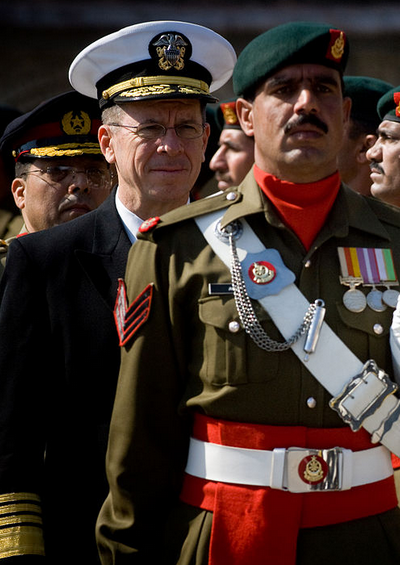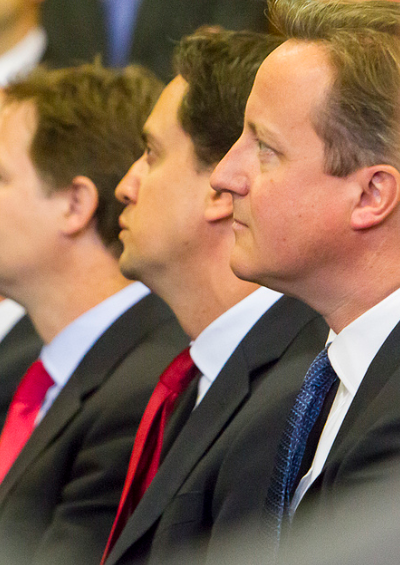Is Yemen a Proxy War?
The misinformed media incorrectly place the blame on Iran for Yemeni uprising.
May 8, 2015

When Saudi Arabia began its intensive bombing campaign in Yemen on March 25, the Wall Street Journal headlined the following day, “The Yemen Conflict Devolves into Proxy War.”
The next day Reuters asked on its blog, “Who’s fighting whom in Yemen’s proxy war?”
But in fact the Saudi bombing campaign in Yemen, which has killed mostly civilians and used cluster bombs that have been outlawed by much of the world, is no proxy war.
Not quite a proxy war
Prominent 20th century political scientist Karl Deutsch defined “proxy war” as “an international conflict between two foreign powers, fought out on the soil of a third country, disguised as a conflict over an internal issue of the country and using some of that country’s manpower, resources and territory as a means of achieving preponderantly foreign goals and foreign strategies.”
Certainly the Saudi bombing campaign was a straightforward external military aggression. The fact that the media began labeling Yemen a proxy war in response to the Saudi bombing strongly suggests that they had chosen that term to soften the harsh reality of Saudi aggression.
The Wall Street Journal and Reuters also assumed they have could label Yemen a “proxy war” because they presumed Iran had already turned Yemen into such a war by its support for the Houthis.
But far from proving the Iranian proxy argument, however, the Houthi takeover of Sanaa last year has actually provided definitive evidence to the contrary. U.S. intelligence sources recently told the Huffington Post that before the Houthis entered the capital, the Iranians had advised against such a move, but that the Houthis ignored that advice.
Gabriele vom Bruck, a leading academic specialist on Yemen at the School of Oriental and African Studies in London, says that senior Yemeni officials with links to intelligence had told her the same thing weeks before the story was leaked.
The Houthis rejected the Iranian caution, vom Bruck believes, because former Yemeni President Ali Abdullah Saleh and his son Ahmed Ali Saleh (the former commander of the Republican Guard) had indicated to them that troops that were still loyal to the pre-2012 leadership and would not resist the Houthi units advancing on the capital, unless the Houthis attacked them.
So the Houthis clearly don’t intend to serve an Iranian strategy for Yemen. They have their own goal and strategy, formed in a decade of armed struggle against the central government. And since the Houthis’ armed struggle is for their own objectives, it is not a proxy war from either the Saudi or Iranian side.
Unsubstantiated claims
The proxy war narrative about Iran and the Houthis is also false in crediting claims by the former governments of Saleh and his successor Abd Rabbuh Mansur Hadi that Iran has been sending arms covertly to the Houthis for many years. Those claims lack credibility for the simple reason that the Houthis are fighting in a country that is awash in weapons, ranging from light weapons to medium-heavy weapons.
The Houthis have been carrying out essentially guerrilla warfare for more than a decade, during which they fought a series of wars waged by Yemeni government troops to suppress them. In the process, they have acquired more weapons with every round of fighting.
A 2010 Rand Corporation study done for the Defense Intelligence Agency found that, even at the beginning of the Houthis’ wars in 2004, the number of weapons in the governorates dominated by Houthis was twice as great as the number of adult males.
And the weapons then included Kalashnikov rifles, rocket propelled grenades and surface to air missiles – all of which the government of Yemen has claimed were shipped to the Houthis from Iran recently.
The Iranians have also been accused of having Hezbollah specialists train the Houthis. But an article in the conservative Iranian newspaper Kayhan pointed out in 2009 that the claim “revealed the stupidity” of the officials making the accusation, because the Houthis “have a much longer history of guerrilla warfare than Lebanon’s Hezbollah….”
Leave Iran out of it
Yemen may indeed be “devolving” into a proxy war, because of the Saudis assisting the Salafist enemies of the Houthis. And one can certainly point to wars in the Middle East that perfectly fit the definition of “proxy wars.”
Syria and Libya both provide textbook cases of outside powers (Saudi Arabia, Qatar, UAE, Turkey) recruiting armed groups to overthrow a government or to dominate the government in the future. The result has been the growth of terrorism and chaos in those countries.
But it has been the Saudis and the other Gulf regimes that have created those proxy wars. The news media should be pressured to focus public attention on that significant and disturbing reality instead of trying to spin a tale of an Iranian-initiated proxy war.
Takeaways
The Saudi bombing campaign in Yemen is no proxy war.
The media love to jump to the conclusion that Iran is the greatest culprit in Yemen. Not so.
Before the Houthis attacked the Yemeni capital, Iran urged them not to.
Yemen has been awash with small and medium arms for years. Blaming Iran ignores the evidence.
The Saudis and other Gulf regimes are responsible for the proxy wars in the Middle East, not Iran.

